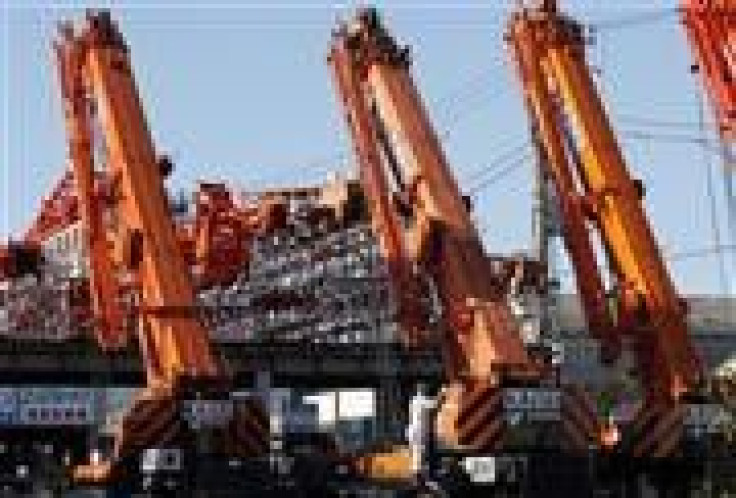Japan shows further signs of slowdown

Japan’s trade with other nations rose only slightly in October, raising fears of a slowdown in the recovery of the export-dependent country.
Japan’s current account surplus, a measure of trade with the rest of the world, expanded 2.9 percent 1.44 trillion yen ($17.20 billion) in October year-on-year, the ministry of finance said on Wednesday.
Markets had expected the current account surplus of Japan to rise by 7 percent in October.
In September, the surplus increased by 24.3 percent.
Analysts expect the weakening demand in the US, Europe and China will continue to hurt Japan’s exports, the main driver of growth of its economy.
According to a United Nations (UN) report last week, the global economy’s growth is expected to be weaker at 3.1 percent in 2011 compared with an expected growth of 3.6 percent in 2010.
Japan's economic and fiscal policy minister Banri Kaieda said today he expected growth to be significantly lower in the fourth quarter.
Japan's economy grew stronger than expected at 0.9 percent in the third quarter, as a rise in consumer spending had offset weakening exports and a strong yen. Bulk of the growth in Q3 was driven by consumer spending which went up 1.1 percent quarter-on-quarter.
Kaieda said the overall gross domestic product (GDP) of Japan in 2010 will grow to 2.6 percent.
According to the minister, Japan is expected to witness a much weaker growth in 2011 at 1.6 percent.
Amid growing concerns over the economic recovery, Prime Minister Naoto Kan's Cabinet in October approved $57.8 billion in new stimulus spending. The package extended financial support for small businesses and local economies in Japan.
After coming into power in June, Kan approved $11 billion package in September to create jobs and boost the country’s GDP.
Earlier this year, Japan lost its position as the world’s second largest economy to China.
Other economic indicator from the finance ministry showed that core private-sector machinery orders, a main gauge of corporate capital spending, fell 1.4 percent in October following 10.3 percent decline in September. Economists had expected 0.1 percent fall in machinery orders for October.
However, the Economy Watchers' Survey index for current conditions in Japan rose to 43.6 in November from 40.2 in October, posting an increase for first time in four months, the Cabinet Office said on Wednesday.
The index was driven up mainly by strong purchases of consumer electronics and higher demand for winter clothing.
The index still remained below the key level of 50 for the 44th straight month in November.
“November's Economy Watchers Survey (EWS) suggests that conditions may not be quite as bad in the fourth quarter as some fear, although the outlook is cloudier. The weakness of machinery orders at the start of the quarter is certainly discouraging,” a Capital Economics analyst wrote in a note.
© Copyright IBTimes 2024. All rights reserved.











